Best A2 Baby Formula (Organic Infant Formula Review)
This post may contain affiliate links. As an Amazon Associate, I earn from qualifying purchases. Please read my disclosure.As if there weren’t enough options yet, you may have come across a new addition in the milk aisle and formula shelves, or in your favorite baby formula online shop. A2 milk seems to be the newest hype. In this post I take a closer look at this type of milk, and provide with you the best A2 formula brands on the market, so you can decide if it’s the best choice for your child.
What Is A2 Milk?
Cow’s milk contains a protein structure made up of mostly casein (about 80%) and whey (about 20%) . Whey is a simpler protein, whereas casein is a more complex protein, and takes longer to digest.
There are several types of casein proteins. The most common ones are A1 and A2 beta-casein protein. As the name suggests, A2 milk contains almost exclusively A2 milk protein and no A1 protein. Regular cow’s milk contains both A1 and A2, although the proportions vary with different breeds.
The difference between the two beta casein variants A1 and A2 is small: They only differ from one another by one amino acid (out of more than 200 amino acids that make up the proteins).
How Is A2 Milk Produced?
Contrary to what many people believe, A2 protein milk is not produced synthetically. It is regular milk that is coming from a few specific breeds of cows. The cows are not genetically modified but produce this milk naturally.
Many decades ago, cows produced only milk with exclusively A2 beta casein. A1 beta casein was created via a mutation, and was passed on to other breeds and spread throughout the world. Over time, A1 became the presiding version of the protein.
Nowadays, there are still dairy farms where the cows exclusively produce A2 milk. Especially in parts of Asia, Africa and Southern Europe.
In the US, the A1 version of milk is most common (containing both A1 and A2 beta casein). This is why A1 milk is what we grow up drinking and what we see in dairy isles in the supermarkets.
A2 milk was made popular by a company founded in 2000 in New Zealand: The “A2 Milk Company”. It was founded by a research scientist who studied the effects of A1 beta casein.
The A2 Milk Company uses DNA tests on their cows to ensure they only produce A2 milk, then they test the milk after production to make sure it does not contain A1 beta casein protein.
Benefits Of A2 Milk
A1 and A2 beta casein are digested differently. Explained as simply as possible: A1 protein produces a peptide called BCM-7 when it is digested. The intestines absorb this peptide. Some doctors and researchers have linked BCM-7 to stomach pains and discomfort similar to those caused by lactose intolerance (for example gas and bloating). A2 protein does not produce this peptide.
Some studies have shown that switching to A2 milk can relieve symptoms of discomfort related with the consumption of A1 milk.
Some studies have found that there is a link between the consumption of A1 protein and a higher risk of developing type 1 diabetes in children.
Other studies, however, have found no such correlation. We know that there is a positive correlation between babies consuming dairy and type 1 diabetes later on in life. But it is extremely difficult to determine which components of the milk cause this.
The same is true for A1 protein in correlation with heart disease: Some studies have found that there may be a correlation, while others showed the opposite.
In 2009, the European Food Safety Authority (EFSA) reviewed the potential health impact of beta casein protein and related peptides and found no sufficient evidence for the claim that milk containing A1 protein has a negative effect on health.
We can’t say with certainty whether A2 milk is healthier or easier to digest. There is a lack of research and scientific evidence to support those claims.
A2 milk may have benefits, but the scientific evidence is not clear enough to make any definitive proclamations about positive health effects of A2 milk at this point. Additionally, most of the studies that have been conducted on A2 milk were funded by the A2 Milk Company and can’t be considered unbiased.
A2 Milk In Baby Formula
Apart from the potential benefits discussed before, breast milk (as well as milk from other mammals such as goat, sheep, and camel) have mostly the A2 variant of beta casein. Therefore, this special A2 cows milk has a protein composition that is closer to breast milk than that of A1 milk, and could be more beneficial for your baby’s health.
For premature infants who have an underdeveloped digestive system, A2 formula may be a good option since it will likely be gentler on their tummies.
When it comes to A2 milk formula, there are several organic infant formula options available. However, many A2 baby formula is not organic or non-GMO.
Before starting any new formula, be sure to consult your baby’s doctor.
When purchasing an A2 Formula look for the following:
- Organic
- Non-GMO
- DHA and ARA (not from hexane extraction)
- No Added Sugars
- No Maltodextrin
- No Palm Oil (Learn more: Palm Oil In Baby Formula)
- No Soy
Holle A2 Formula
The popular Swiss baby formula brand Holle has just extended its product range to A2 formula. As per usual with Holle, the ingredients are all high quality, sourced from organic farming and are GMO, hormone, and pesticide free. Holle A2 formula is fortified with the optimal blend of vitamins and minerals and adjusted in macro-nutrient contents to fit the age of your baby. This premium infant formula is made with A2 cow’s milk.
Holle A2 Milk Ingredients:
Skimmed A2 Milk 1, Whey Product (Partially Demineralized Whey Powder), Vegetable Oils (Palm Oil 2, Rapeseed Oil, Sunflower Oil), Lactose, Calcium Carbonate, L-Tyrosine, Potassium Chloride, Fish Oil 3, Magnesium Chloride, M. Alpina Oil**, Calcium Chloride, Calcium Hydroxide, Choline, Sodium Chloride, L-Tryptophan, Inositol, Ferrous Lactate, Vitamin C, Zinc Sulfate, Vitamin E, Niacin, Pantothenic Acid, Copper Sulfate, Vitamin A, Vitamin B1, Manganese Sulfate, Vitamin B6, Potassium Iodate, Folic Acid, Sodium Selenate, Vitamin K, Vitamin D, Biotin.
Ingredients to Note:
Overall, Holle uses quality organic ingredients. However, there are two ingredients to note, palm oil, and fish oil. While palm oil is safe for baby to consume, and is used often in formulas as a primary source of fat, it does raise some ethical concerns with regard to how it is sourced. In addition, palm oil may decrease calcium absorption. As a result calcium is added to formula to compensate so that your baby is getting all the calcium that they need. In addition, if you provide your baby with a formula that has prebiotics and/or probiotics, this will help with calcium absorption and improve baby’s health by protecting against immune problems.
Another ingredient to take note of is fish oil. In Holle, fish oil is added to provide DHA, Omega-3 fatty acids. In Europe, it is required to have DHA in formula. However, there has been some controversy about fish oil. Some experts say that infants cannot process fish oil, which in turns leads to vomit and milk back-up. There are other ways to add DHA without the need to use fish oil. M. alpina oil and c. cohnii oil which is extracted from algae is a plant source of DHA, and it’s extracted using water, not hexane.
Best Organic A2 Cow’s Milk Formulas
Holle A2 Stage 1
Holle organic A2 formula stage 1 is made for babies up to 6 months old. It has all important nutrients that are required by strict European regulations to make sure that your baby grows up happy and healthy. It’s certified organic by the EU, non-GMO, uses A2 skimmed milk (organic nonfat milk), may improve digestion, no artificial sweeteners, and has added DHA. It’s one of the best organic baby formulas made with A2 cow’s milk you can find. Milk comes from European cows that are grass fed.
Pros
Cons
Holle A2 Stage 2
Holle organic A2 formula stage 2 is made for babies from 6 months old as part of a mixed diet with solid foods. It has all the important nutrients that are required by strict European regulations to make sure that your baby grows up happy and healthy. It’s certified organic by the EU, non-GMO, uses A2 skimmed milk, all milk contains no artificial growth hormones. A2 milk may improve digestion, no artificial sweeteners, and has added DHA.
Pros
Cons
Holle A2 Stage 3
Holle organic A2 formula stage 3 is made for babies from 10 months or older as part of a mixed diet with solid foods. It has all the important nutrients that are required by strict European regulations to make sure that your baby grows up happy and healthy. It’s certified organic by the EU, non-GMO, uses A2 skimmed milk, may improve digestion, no artificial sweeteners, and has added DHA.
Pros
Cons
Aussie Bubs Supreme A2 Formula Stage 1
Bubs Supreme formula is a cow’s milk formula alternative, as it’s made with natural A2 beta-casein cow’s milk protein instead of the more commonly found A1 casein protein that’s in most cow milk. A2 protein is easier to digest, so this may work better for babies with sensitive tummies. Additionally, this formula contains their “NUTRABIO+™” formulation to support key growth areas including digestive health, brain and eye development, and immune system development. Aussie Bubs’ A2 cow’s milk is sourced from Australia and New Zealand, making it high quality and free of hormones, pesticides, and artificial ingredients. They also add a symbiotic blend of Probiotics and Prebiotics to ensure that this formula is as easy to digest as possible.
Pros
Cons
Aussie Bubs Supreme A2 Formula Stage 2
Bubs Supreme formula stage 2 is identical to its stage 1 formula, but stage 2 is formulated specifically for infants aged 6-12 months. It’s slightly higher in iron and the nutrients are slightly different to match the needs of older infants. It is also made with A2 cow’s milk protein, making it easier to digest, and potentially better for babies with sensitive tummies. It also includes their “NUTRABIO+™” formulation to support digestive health, brain and eye development, and immune system development. Their A2 cow’s milk is sourced from Australia and New Zealand, making it high quality and free of hormones, pesticides, and artificial ingredients.
Pros
Cons
Serenity Kids A2 Milk Toddler Formula
Serenity Kids Grass Fed A2 Whole Milk Toddler Formula is a nutrient rich, easy to digest formula made with A2 protein, quality fats, carbohydrates, prebiotics, vitamins, and minerals. It is intended for children 12 months and up.
Pros
Cons
Similac Organic with A2 Milk
Similac Organic A2 Milk formula is modeled after breast milk and made with organic lactose. It is a gentle, easy-to-digest infant formula made with A2 milk and USDA-certified organic ingredients. Like most of the formulas on this list, this a2 formula also includes vitamins such as vitamin a palmitate, vitamin d3, vitamin b12, etc.
Pros
Cons
Gerber Good Start Non GMO A2 Milk Formula
Gerber Good Start A2 promotes baby’s gut health, with a protein blend of whey and A2 milk similar to breastmilk. It is made with a combination of A2 milk, probiotic L. reuteri and prebiotic 2 FL HMO.
Pros
Cons
Goat Milk A2 Formula
Goat milk formula is easier to digest than cow milk and the A2 milk makes the formula easier for infants to absorb. The added HMOs make this Goat milk formula different than the other options on the market as well.
Kendamil Goat Milk Formula Stage 1
Made with 100% full cream goat’s milk with prebiotics. Kendamil is rich in iron, Vitamin A, Vitamin C, and Vitamin D. Kendamil formula has added DHA and ARA obtained without hexane extraction, and is fish oil free. It also uses organic coconut oil instead of palm oil. This blend supports muscle, eye, and brain growth.
Pros
Cons
Jovie Goat Milk Baby Formula
Jovie Goat Milk Baby Formula Stage 1 contains high quality organic ingredients, is made in Europe, and contains organic whole A2 goat milk as the main carbohydrate in their formula. This formula is ideal for babies 0-6 months of age and comes in an amount of 800g / 28oz of formula powder per reinforced can. Jovie contains no coconut oil, no palm oil, and has added prebiotics to aid in digestion.
Pros
Cons
Holle Goat Stage 1 Organic Formula
Holle Goat Milk Stage 1 is made for infants up to 6 months of age. This German baby formula is developed for children who may have a cows milk allergy or sensitivity. Holle organic infant Goat milk formula 1 contains all important nutrients that are required by strict European regulations.
Pros
Cons
Kabrita Goat Milk Toddler Formula
Made in the Netherlands, this European formula is made with non-GMO ingredients. It is naturally easier to digest because goat’s milk does not contain A1 protein (it’s A2 milk by nature!). It contains added goat whey for easier digestion, has a mild taste, and is rich in nutrients.
Pros
Cons
FAQs
A2 formula is prepared similar to regular cows milk formula. Before you prepare any baby formula, makes ure to wash hands thoroughly. Then you’ll just be mixing the required amount of powder in water that has been boiled and shake thoroughly. To ensure maximum safety of the product, always closely follow the instructions on the back of the can or box. Serve prepared formula immediately at room temperature.
Babies that have been diagnosed with cow milk allergy can’t consume A2 milk formula. Even though A2 milk has a different protein structure, it will most likely cause the same reactions.
A2 milk is not lactose free. Lactose intolerant babies will show the same reactions to A2 milk as they do with A1. Some symptoms of discomfort similar to lactose intolerance may be relieved with A2 milk. This can be the case if the symptoms are not actually caused by lactose but by the BCM-7 peptide.
If your child suffers from colic and it is due to digestive discomfort, A2 formula could help relieve some of that discomfort, and in turn improve the symptoms of colic.
Final Thoughts: Is A2 Formula Milk Better?
Regular cow’s milk formulas contain the essential micro and macronutrients for growth and development. A2 milk formulas are an alternative to regular cow’s milk formula. It may be a good option if your baby is experiencing some discomfort with regular milk based formulas.
Sources
- A2 Milk Facts
- The Benefits and Risks of A2 Milk
- European Food Safety Authority
- The A2 Milk Case: A Critical Review
- A1 vs A2 Milk: Does it matter?
I hope this guide to A2 formula has answered your questions, and helped you make an informed choice about the type of formula you’d like to start your baby on.
More Helpful Baby Formula Guides!
- Best Formula for Reflux
- Benefits Of Goat Milk Formula
- Best Vegan Baby Formula
- Kendamil vs. Bobbie
- Best Lactose Free Baby Formula
- Bubs Formula Review
- Best Organic Baby Formula
- Best Toddler Formula
- Best Baby Formula Brands Made in the US
Love this baby formula guide? Please leave a 5-star rating 🌟 in the recipe below and/or a review in the comments section further down the page!
You can also FOLLOW ME on FACEBOOK, INSTAGRAM, and PINTEREST to see more delicious, healthy, family-friendly food, and if you have any questions, I’m here to help!



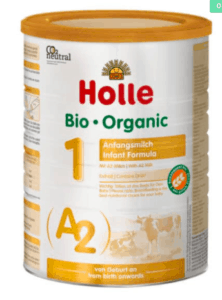
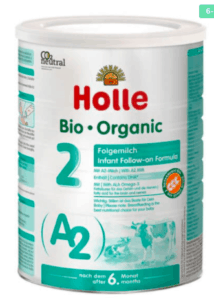

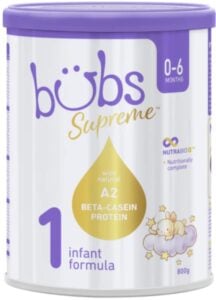
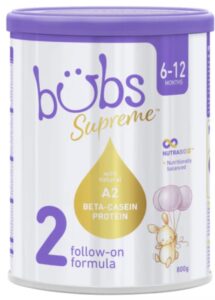
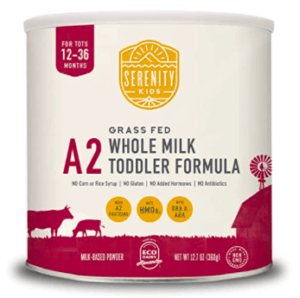
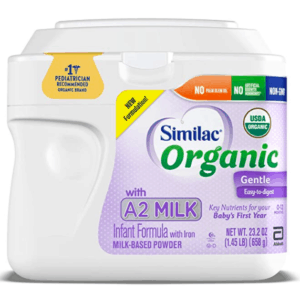
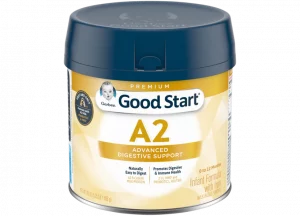
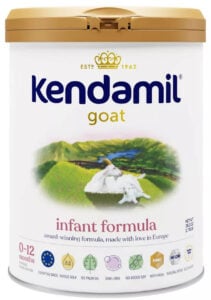
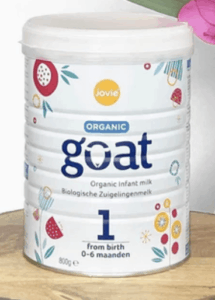
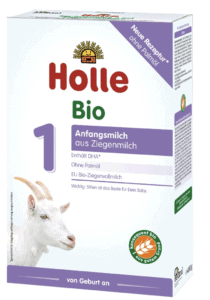
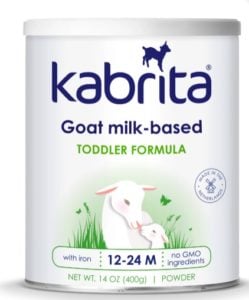



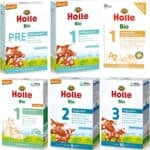








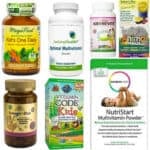
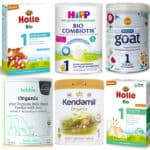



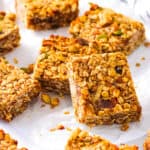











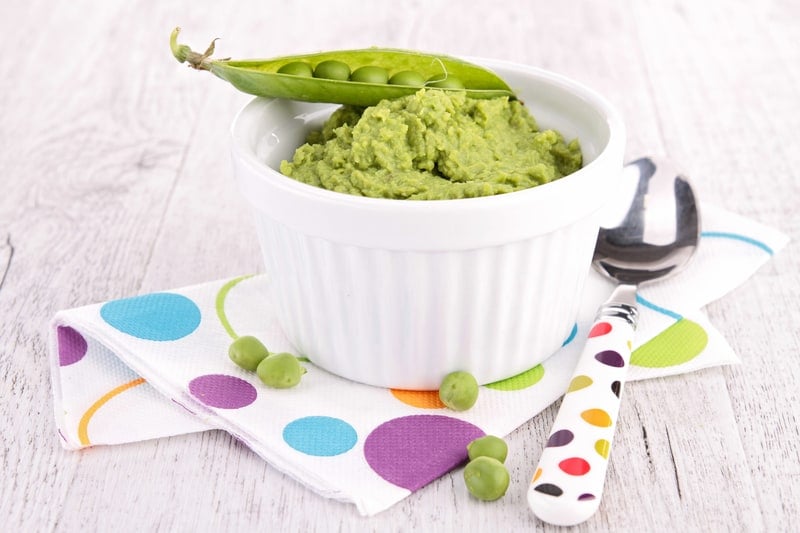



What are your thoughts on Capri care goat ? My baby seemed to tolerate that very well but kabrita messed up his stomach so bad and he was screaming with gas. Any idea why? I love all your reviews. You do an awesome job
Hi Nika! I don’t know much about Capri care goat unfortunately! On first glance at their ingredients – they look good. It looks like they are not organic and they don’t contain pre/probiotics, but they have no syrup solids added and they do include DHA/ARA. They don’t include palm oil or soy oil – which can be two “irritating” oils for some babies – so maybe that’s why your baby did better on it! I would say if your baby was doing well on it, just stick with it – no need to rock the boat 🙂 Hope that helps!
Any idea about A2 Platinum formula from Australia?
Hi Megan! It looks pretty decent from an ingredients standpoint – no syrup or added sugars, includes DHA, ARA and prebiotics, no maltodextrin or palm oil, overall pretty clean. I think the only downside is it doesn’t look like it’s organic – so that’s just something to consider and keep in mind. Hope that helps!
Have you looked in little oak? If so, I’d like to know your thoughts! Thanks!
Hi Susan! Thanks for reaching out! Little Oak Formula is actually really high quality – and I’ll be adding them to this post soon! Out of all the goat milk formulas, I’d say they’re better than Kabrita and maybe just a little less ideal than Loulouka, mainly because they are not certified organic even though many of the farms they work with use organic farming practices. Hope that helps! Let me know if you have any other questions!